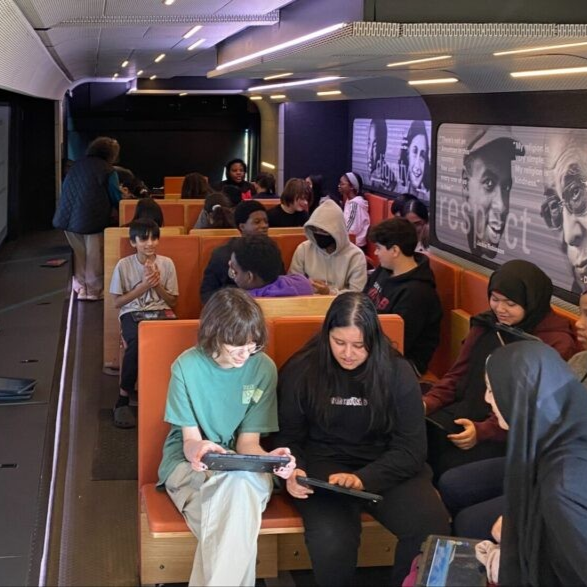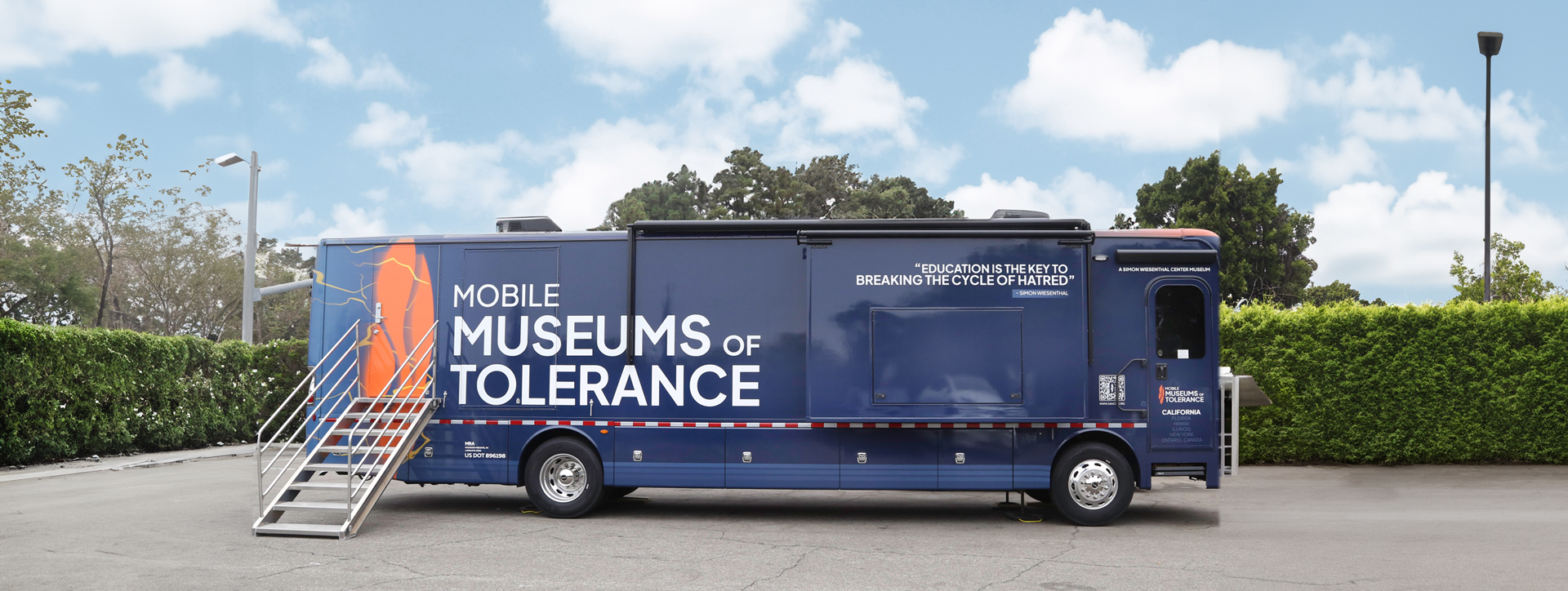MMOT Educational Workshops
Through workshops on topics including Civil Rights, the Holocaust, bullying, and the dangers of hate on social media. Students, educators and law enforcement representatives will not only be educated, they will be moved promote positive change.

Civil Rights Workshop
– Illinois State Learning Standards Crosswalk for MMOT Civil Rights Workshop– Civil Rights One Page for Educators
– TEACHER’S GUIDE – Civil Rights
This workshop explores civil rights using historic and contemporary lenses. The MMOT educator will begin the lesson with a facilitated dialogue to help students explore the concepts of identity and commonality before launching into a short documentary featuring American civil rights heroes and their struggle for equality during the 1950’s and 1960’s Civil Rights Movement. Students will reflect on other fights for civil rights throughout US history. Major topics of discussion include discrimination, racism, segregation, equality, nonviolent protest, stereotypes, and dehumanization.
Suitable for grades 5-12.

The Anne Frank Story
– Illinois State Learning Standards Crosswalk for The Anne Frank Story Workshop– The Anne Frank Story One Page for Educators
– TEACHER’S GUIDE – The Anne Frank Story
Aimed at younger audiences, the goal of this workshop is to enhance middle school students’ ability to become proactive members of society by influencing positive change. Students view an immersive short film about the life of Anne Frank before launching into a discussion on the Holocaust, anti-Semitism, and resistance. Stereotypes, racism, and prejudice are defined and discussed in an age-appropriate manner.
Suitable for grades 5-8.

The Power of Ordinary People
–Illinois State Learning Standards Crosswalkfor The Power of Ordinary People– One Page For Educators-The Power of Ordinary People
– TEACHER’S GUIDE- The Power of Ordinary People
While ordinary people have the power to create positive exchange in their communities, they also can be enforcers of hate and violence. This workshop explores both sides of this complex issue by discussing the various roles that ordinary people played in resisting and enabling the events of the Holocaust. A short film discussing the ordinary people who took part in anti-Semitic violence – and those who stood by and allowed it to continue – is contrasted with stories of heroes who stood up against hate and saved lives during the Holocaust. The discussion will bring the roles of upstander and bystander into the modern day, leaving students with the understanding that they must take an active role in preventing hate and promoting tolerance in their communities.
Suitable for grades 7-12.

Combat Hate:
A Digital Media Literacy Workshop
– Illinois State Learning Standards Crosswalk for Combat Hate Digital Media Literacy– Combat Hate Digital Media Literacy One Page for Educators
– TEACHER’S GUIDE – Combat Hate
This workshop provides students with the tools to identify and analyze potentially harmful media, stand up against hate and violence online, and develop strategies to create a positive social media presence. This program will provide safety and empowerment for young digital citizens during the post-COVID social media age. Students will discuss their own social media presence and experience with hate online. Using tablet computers, students are then asked to use the Center for Media Literacy’s Five Key Questions to analyze carefully curated examples of online hate in small groups. Students will also discuss consequences of online hate and the concept of a “digital footprint.”
Suitable for grades 7-12.

